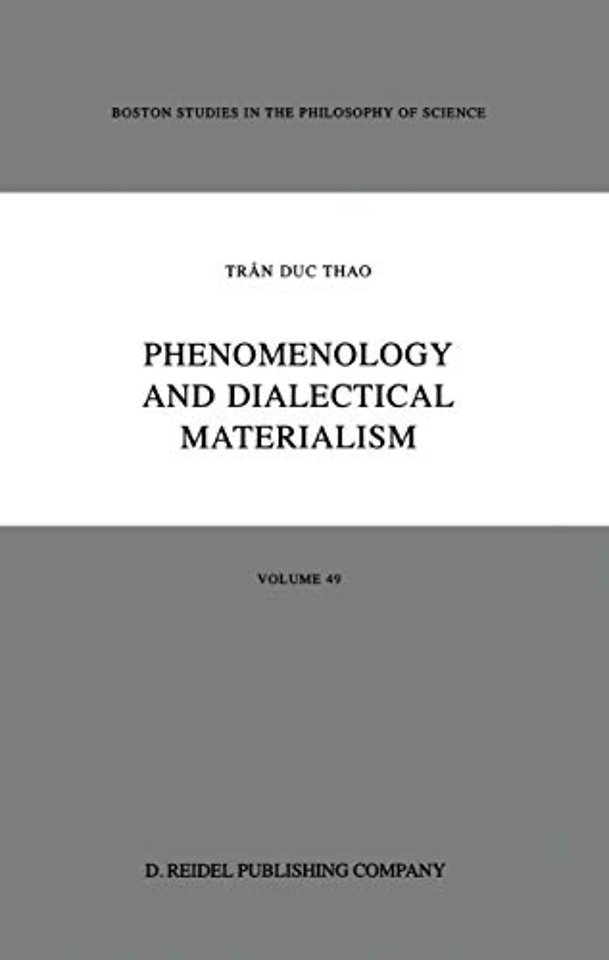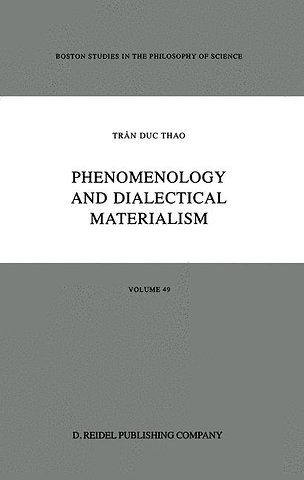Phenomenology and Dialectical Materialism
Paperback Engels 2011 1986e druk 9789401087957Samenvatting
Tran Duc Thao, a brilliant student of philosophy at the Ecole Normale Super ieure within the post-1935 decade of political disaster, born in Vietnam shortly after the F ir st World War, recipient of a scholarship in Paris in 1935 37, was early noted for his independent and originaI mind_ While the 1930s twisted down to the defeat of the Spanish Republic, the compromise with German Fascism at Munich, and the start of the Second World War, and while the 1940s began with hypocritical stability at the Western Front fol lowed by the defeat of France, and the occupation of Paris by the German power together with French collaborators, and the n ended with liberation and a search for a new understanding of human situations, the young Thao was deeply immersed in the classical works of European philosophy. He was al so the attentive but critical student of a quite special generation of French metaphysicians and social philosophers: Gaston Berger, Maurice Merleau Ponty, Emile Brehier, Henri Lefebvre, Rene le Senne, Jean-Paul Sartre, perhaps the young Louis Althusser. They, in their several modes of response, had been meditating for more than a decade on the philosophy of Edmund Husserl, which came to France in the thirties as a new metaphysical enlighten ment - phenomenology.
Specificaties
Lezersrecensies
Inhoudsopgave
Rubrieken
- advisering
- algemeen management
- coaching en trainen
- communicatie en media
- economie
- financieel management
- inkoop en logistiek
- internet en social media
- it-management / ict
- juridisch
- leiderschap
- marketing
- mens en maatschappij
- non-profit
- ondernemen
- organisatiekunde
- personal finance
- personeelsmanagement
- persoonlijke effectiviteit
- projectmanagement
- psychologie
- reclame en verkoop
- strategisch management
- verandermanagement
- werk en loopbaan

